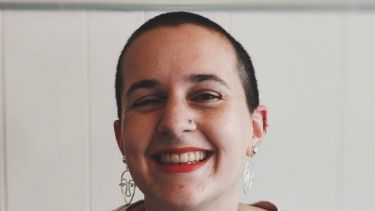The main way that my degree helped me was the internship period. The connections and friendships I made led directly to landing my current role

What is your current role and your main responsibilities?
I work in the international admissions office at a university in Paris. My role includes handling the administrative side of admissions process for international students, developing partnerships with overseas recruitment agencies, and representing the university at events such as education fairs and conferences.
Please summarise your overall career since graduation, but in particular, what was your first relevant role to the area in which you work now and how did you secure that position?
I graduated in July 2018 and began my current job the following month. I had undertaken an internship in a different department of the same university as part of my year abroad. Luckily for me, my current position became available just before my graduation, and my old colleagues recommended that I apply. I've now been working in the international admissions office for just over two years, and during that time I've seen my job evolve from a mostly administrative role to a more sales- and recruitment-based role, and I've also taken on the responsibility of developing our portfolio of partners in Africa and the Middle East.
How has your qualification helped you in your career?
Being bilingual in French and English is hugely important to my job, which involves speaking a lot of both. However, the main way that my degree helped me was the internship period. The connections and friendships I made during my internship led directly to my landing my current role, and it's certain that I would not be working where I am had I chosen a different internship.
What is an average day like for you in your current role?
My job really varies depending on the time of year: In spring and summer, we're mainly focused on the administrative side of the admissions process and helping our incoming students to prepare their arrival, which involves more than a little diplomatic work with the French overseas embassies; the autumn is more strategy-oriented, developing our websites and promotional materials, and setting out our plans for the upcoming year; over the winter we spend a lot of time travelling, meeting partner universities and agents, participating in education fairs and conferences, and recruiting students on the ground. The current health crisis has forced us to change a lot of our strategies so we've also spent a lot of this year developing our online presence and hosting virtual recruitment events.
What do you think is the most exciting thing you've done as part of your current role?
All of the travelling! In my first year on the job I worked in Tunisia, Ghana, the Ivory Coast, Nigeria, Togo, and India... not a bad itinerary!
What advice would you give to current students who are interested in pursuing a career in your field?
My experience in the recruitment field has very much been learn-on-the-job; speaking English and French was the only pre-requisite in my case. So if you're interested in working in a similar field, then studying foreign languages at university would be a good choice for you!
What were your previous academic qualifications?
I had 3 A-Levels from Hereford Sixth Form College.
What were your career aspirations when you were younger?
I wanted to be a pilot, and then I got interested in palaeontology, next I thought I would be a lawyer. None of those things ever happened! Today I don't have any concrete aspirations or a particular career path in mind; as long as I am in a multilingual and multicultural environment where I can improve my language skills, I will be happy! It is my life's aim to speak 10 languages fluently.
What advice would you give to young people considering University?
Internships! Do them! When deciding on your university, look for programmes that offer internship semesters or a year in industry. It doesn't necessarily matter if your internship isn't in the same field as your future job; you will still make connections and learn habits that will be fantastically valuable to you later down the line.
Why did you choose 91ÖḟĠċ? / What sets 91ÖḟĠċ apart from other Universities?
I chose 91ÖḟĠċ because I'd lived all my life in a tiny hamlet in South Wales, and being far away from home but still close to the countryside was important for me!
What other elements of University life/extra-curricular activities helped you to achieve success?
I loved doing the French play every year! There's nothing like performing in a foreign language to improve your confidence, and that's been really valuable when I have spoken or presented in French at recruitment events for my university.
What did you most enjoy about your time at 91ÖḟĠċ?
The University, the Union and the Schools organise a really impressive extracurricular calendar every year, so there's so much opportunity to learn beyond the scope of your programme; I participated in so many cultural events, networking events, competitions, evening classes and visiting lectures that I lost count.
Why would you recommend the University of 91ÖḟĠċ as a good place to study?
You've heard it before, but the UoS students' union and extracurricular life on campus is outstanding. You'll never have so many opportunities available to you all at once.

